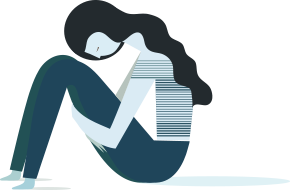Is This Abuse

Not sure if a situation is abusive or not? Ask yourself if your significant other:
-is overly jealous or possessive?
-puts you down or criticizes you?
-threatens or scares you?
-hits, slaps, pushes, or kicks you?
-controls where you go, what you wear, or what you do?
-tries to stop you from seeing or talking to friends and family?
-pressures you do to things you don’t want to do?
-tries to force you to have sex?
-controls or restricts your use of birth control or condoms?
-threatens to “out” you or tell others about your sexual orientation or gender identity?
-questions your status as a “real” lesbian, trans person, bisexual, gay person, etc.?
-controls your gender presentation or your access to hormone therapy medication?
What can you do?
- Call the police if you are in danger and seek medical attention if you are hurt.
- You are not alone and the abuse is not your fault.
- Contact love is respect at www.loveisrespect.org and at 1-866-331-9474 (1-866-331-8453 TTY).
- Talk with somebody you trust: a friend, relative, teacher, counselor or doctor.
- Think independently. Remember that you are the expert about your own life. Don’t let anyone talk you into doing something that’s not right for you.
- Have a safety plan in the event you are abused again.
- Here are some tips.
- Know that there are people and organizations that are equipped to help you.
- If you truly care for someone, you will not allow them to be abused, by you or anyone else.
- Talk to someone who trust, like a close friend, family member, or someone you respect, like a teacher or counselor at school. Ask their honest opinion about your behavior.
- Contact love is respect at www.loveisrespect.org and at 1-866-331-9474 (1-866-331-8453 TTY).
- If necessary, help your friend get medical attention. Encourage your friend to contact a professional or an adult they trust for help.
- Offer your unconditional friendship and support. Be clear that you are there to listen, and not to judge.
- Ask your friend how they feel, and let them know you’re concerned.
- Remind your friend that it’s not their fault.
- Don’t spread gossip. this could make your friend’s situation more dangerous.
- Don’t try to confront the abuser or rush your friend into a decision they aren’t comfortable with.
- Contact love is respect at www.loveisrespect.org and at 1-866-331-9474 (1-866-331-8453 TTY).
- If you feel safe doing so, ask your friend how they feel and let your them know you’re concerned.
- Encourage your friend to talk to a counselor or an adult they trust for help.
- Don’t cut your friend off. Listen to them and help them clarify their feelings.
- Encourage them to be honest.
- Understand that abuse is a choice made by the abuser. Don’t get stuck in the middle.
- Don’t encourage, justify or joke about abuse.
- Contact love is respect at www.loveisrespect.org and at 1-866-331-9474 (1-866-331-8453 TTY).
need serious help right now?
Sometimes things in a relationship can get pretty heavy. If you need to talk to someone right now, someone who’s trained to help, love is respect is available 24 hours a day, 365 days a year. All calls and chats are anonymous and confidential. You can call 1-866-331-9474 (1-866-331-8453 TTY) or visit www.loveisrespect.org.
additional resources
If you or someone you know is in immediate danger, call 911 If you need more help than you're finding on this site, please reach out to the following organizations:
Youth & Teen Organizations
Love is respect 1 (866) 331-9474: Speak to a peer advocate to get help. The advocate will ask if you are in a safe place to talk, and once you are, they will help you come up with some ways to best meet the needs of your situation.
Love is Respect Safety Planning Guide: An interactive guide that will ask for information about your situation and help you create a safety plan.
Break the Cycle: Supports young people ages 12-24 to build healthy relationships and create a culture without abuse.
A Thin Line: MTV’s campaign to empower teens to identify and stop digital abuse.
Half of Us: Raises awareness about mental health issues and connects students to resources.
Stop Bullying: Provides information about bullying and cyberbullying, including how to get help.
Native, American Indian, First Nations and Alaska Native Youth Organizations
We R Native: Resources for Native youth about relationships, health, culture, and life transitions.
Native STAND: A peer education curriculum for healthy decision making for Native youth.
The Center for Native American Youth: A wide range of resources for Native youth.
Lesbian, Gay, Bisexual, transgender and Queer Youth (LGBTQ) Organizations
The Trevor Project 1 (866) 488-7386: Provides suicide prevention services to LGBTQ youth ages 13-24.
GLBT National Youth Talkline 1 (800) 246-7743 : Peer-counseling, information and resources for youth through age 25. Online peer-support chat also available.
National Listing of LGBT programs (Youth & Adult): Lists of anti-violence programs nationwide.
Los Angeles Gay & Lesbian Center: Provides services and resources to the LGBTQ community.
Show Me Love DC: Provides information and resources to people affected by intimate partner violence in LGBTQ communities.
National Victim Services Organizations
National Suicide Prevention Lifeline 1 (800) 273-8255: A 24-hour, toll-free hotline available to anyone in suicidal crisis or emotional distress.
National Center for Victims of Crime – Dating Violence Resource Center: Resources for survivors of teen dating violence.
Rape, Abuse, and Incest National Network (RAINN) 1 (800) 656-HOPE (4673): Provides information, resources and services for survivors of sexual assault.
National Network to End Domestic Violence (NNEDV): Provides support and resources for advocates and survivors of domestic violence.